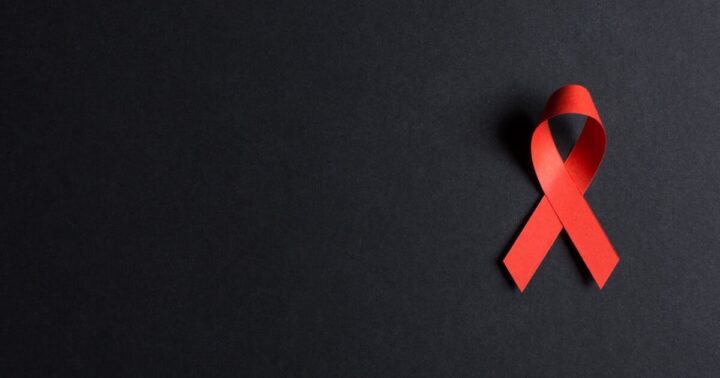The Covid-19 pandemic is not only causing a high transmission and mortality rates, but also disrupting health services for PLWHA (People Living with HIV & AIDS). Global efforts to end HIV & AIDS have been hampered and Indonesia’s target of ending AIDS by 2030 is facing serious challenges. As example, there are obstacles in accessing treatment which worsen the condition of PLWHA during the pandemic.
For that reason, it is very important to remind the public about the urgency of the HIV & AIDS. On Wednesday, June 23, 2021, USAID, UNAIDS and Jaringan Indonesia Positif (JIP) in collaboration with Kompas Daily (Harian Kompas) held a Webinar entitled “Kompas Talks: Will Indonesia End AIDS in 2030?”. This webinar was hosted by Kompas Daily journalist, Evy Rachmawati and attended by a number of guest speakers such as Dr.dr. Maxi Rein Rondonuwu (from the Ministry of Health), Mr. Abetnego Panca Putra T. (from Presidential Staff), Mrs. Nafsiah Mboi (HIV & AIDS advocacy activist) and Meirinda Sebayang (Chairman of JIP) to discuss the progress of HIV prevention & AIDS in Indonesia and the government’s technical strategy to end AIDS by 2030.
In line with the global commitments of countries around the world, Indonesia has adopted the Triple-90 global target by 2020, meaning that 90% of PLWHA know their HIV status, 90% of PLWHA receive ARV treatment and 90% of PLWHA have suppressed viral load. Then gradually in 2025 adapt the Triple-95 target and the Three Zeroes target in 2030. However, due to the Covid-19 pandemic, there are concerns that the target of ending AIDS in 2030 will not be realized. According to data from the Ministry of Health of the Republic of Indonesia, until now the realization of Triple-90 itself is still far from the target, especially for PLWHA who access ARV and a suppressed viral load.
|
Triple-90 Target |
The Reality in Indonesia |
|
90% PLWHA know their HIV status |
75% PLWHA know their HIV status |
|
90% ODHA on ARV (Antiretroviral) |
27% ODHA on ARV (Antiretroviral) |
|
90% PLWHA have suppressed viral load |
6% PLWHA have suppressed viral load |
Source: Ministry of Health of the Republic of Indonesia in Kompas Talks June 23rd, 2021
On the other hand, each province has reported that the mortality rate due to HIV & AIDS from the year 2000 to 2020 have decreased significantly. In addition, the estimated number of HIV cases in 2020 appears to have decreased (543,100 cases) compared to 2019 (545,000 cases). However, it is necessary to further observe whether this decline is purely due to a decline or due to a lack of examination and new case finding.
What are our strategies to achieve the Three Zeroes (Zero New Infection, Zero AIDS-Related Death, Zero Discrimination) in 2030? dr. Maxi said that until now, there are several things that the government has done to achieve the Three Zeroes 2030 target, including:
- STOP Strategy (Suluh, Temukan, Obati, Pertahankan / Counseling, Finding, Treating and Maintaining)
Providing various types of counseling to the general public, making efforts to find new cases of HIV such as early infant diagnosis and HIV testing for vulnerable populations, making it easier for PLWHA to receive treatment and intensifying programs that support and accelerate efforts to end HIV (e.g., Expanding viral load access with collaboration across programs and communities).
- Health Service Improvement
From a total of 13,058 Health Service Facilities in Indonesia, 9,951 health facilities have reported cases of HIV and 1,729 health facilities provide ARV treatment (991 health centers, 693 public & private hospitals, and 45 other health facilities: clinics/doctors’ practices/prisons).
- Follow the HIV & AIDS Health Service Delivery Protocol in the Covid-19 Pandemic
The protocol outlines several priority activities, such as ensuring the continuity of ART for PLWHA, sending ARV stocks to homes, providing multi-months dispensing and increasing collaboration with civil society organizations, procuring personal protective equipment for healthcare workers or extension workers, etc.
Certainly, in carrying out these efforts there are challenges that affect the achievement of Three Zeroes in 2030. As previously mentioned, the Covid-19 pandemic has an impact on all aspects of life, including state finances, foreign aid and the socio-economic conditions of the community, so that the success of raising resources and funds also affects the achievement of Three Zeroes 2030.
What Mr. Abetnego underlined is that more commitment and support are needed from the ranks of the Central and Regional Governments, along with all levels of society. Meanwhile, Mrs. Nafsiah and Meirinda emphasized that increasing the quantity of health services must be balanced with improving the quality of services to PLWHA and key populations who are vulnerable to HIV & AIDS. Improving the quality of this service can be done by providing training to healthcare workers, along with providing education and counseling on HIV & AIDS to the community. In this way, stigma and discrimination against PLWHA and key populations can also be stopped.
Read more about Stigma and Discrimination PLWHA…
Angsamerah itself as a foundation, institution and private primary healthcare facilities is very concerned about optimal health services, quality, friendly, and without stigma in the community. To be able to reach many areas, Angsamerah realizes the importance of cooperation with various parties and developing innovations to achieve the Three Zeroes target by 2030.
Therefore, during the Covid-19 pandemic, the government also needs to work with the private sector to add primary health facilities so that they can expand health services, access treatment, and conduct training and counseling to the society. With good cooperation, Indonesia can end AIDS by 2030. Stay healthy!
Webinar Kompas Talks: “Will Indonesia End AIDS by 2030?”
